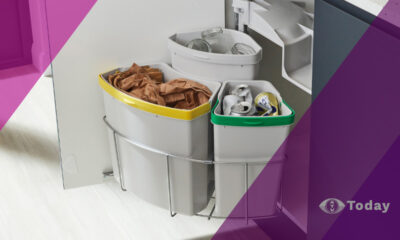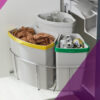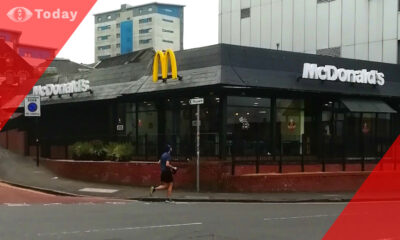Skipping meals and dramatically reducing calorie intake from food in order to save calories for alcohol is known as ‘drunkorexia’, most prevalent in young women.
According to research, almost 60 per cent of female undergraduates exhibit drunkorexic tendencies. Whilst it is not yet a clinically recognised eating disorder, it can have extremely dangerous short and long-term health implications.
Martin Preston, Founder and Chief Executive at Private Rehab Clinic Delamere, shares what drunkorexia is, the common symptoms, along with five recovery tips.
“Drunkorexia is someone who restricts food calories to make room for alcoholic drink calories. Studies have shown that 30% of women between 18 and 23 will diet so they can drink. Drunkorexia is most commonly done to control weight or even lose weight, and whilst it is not recognised as a formal eating disorder or an alcohol abuse disorder, it is extremely dangerous.
What are the signs?
Common signs of drunkorexia include; eating less or skipping meals and drinking alcohol as a replacement, excessively worrying about body image and weight, using laxatives or diuretics to lose weight, engaging in self-induced vomiting, or engaging in extreme diets and excessive exercise regimens.
What are the risks?
There are several risks associated with drunkorexia, both short-term and long-term and they all have a negative impact on the body. Drunkorexia can lead to alcohol poisoning, hypoglycemia, blackouts or alcohol-related damage to the brain.
Long term effects from years of the condition can include liver disease, cardiac problems, diabetes, dementia, osteoporosis.
Recovery tips
There are several recovery tips for those experiencing symptoms of drunkorexia and these will make a significant impact if addressed during the early stages.
It is important to be honest with yourself, if you are experiencing symptoms, self-awareness is an extremely important first step. Record the type and quantity of alcohol you are consuming and how many days a week you are drinking in comparison to the meals you are eating.
If you are drinking more than you are eating, this is the first sign you need to embark on recovery.
Telling someone you are experiencing these problems is also just as important. Whether it be a family member, friend or even someone you do not know, this will hopefully help you feel a sense of relief and gain support.
If you are concerned about this behaviour, referring yourself to an addiction counsellor, an eating disorder specialist or a physician will significantly help. This way you can be assessed and receive a diagnosis and your specialist can offer treatment programmes tailored to your need
- Understand the health risks
Really understanding the implications this type of behaviour can do to your body will really put it into perspective. Knowing the damage you are causing to your body will help motivate you to stop.
- Find someone with the same problem
Finding someone who is also experiencing the same condition as you will help you gain a much better understanding and perspective on your situation. This provides you with a two-way support system and someone who you can really relate with and who will understand what you are going through.












